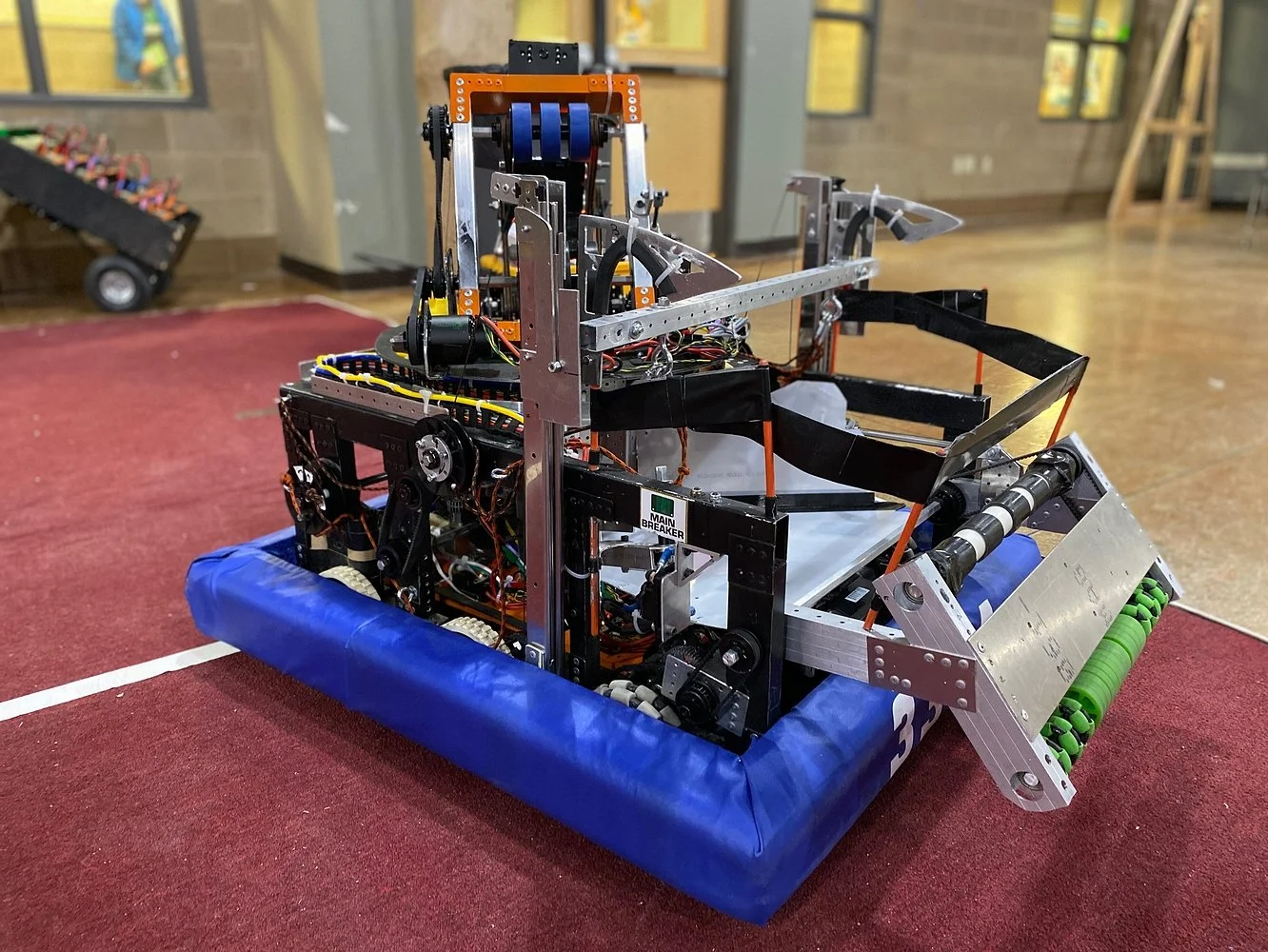As previously mentioned, Kyle first started his robotics journey in the middle school robotics club (FTC). After a couple years, he was moved up to FRC. FRC is worldwide robotics competition, where teams build large scale robots to complete a series of tasks.
In Kyle’s first year in FRC (2018), he became the programming captain of the robotics team. It was here that Kyle learned Java. This was 2 weeks into the 6 week “build season”, when the previous programming captain had quit. Not knowing an ounce of programming, Kyle set out to learn, program the robot, and not let the rest of the team down. Through the help of mentors, hard work, and long hours (as well as skipping the occasional class to get the job done), Kyle was able to achieve this goal. With a ticket to the world championships earned (for building a robotics team on the Wind River Reservation), a “skeleton crew” set out to Houston to compete. Kyle was considered an essential part of the team, and went to help.
There were about 7,000 teams in FRC across the globe that year. The small team from Wyoming, with no major sponsors was able to assist their alliance in placing 5th in the Houston World Championships, and winning the Galileo subdivision. This was largely thanks to our extremely study robot, as well as the fast and consistent autonomous scoring, programmed by Kyle. This programming may have been just a simple path-following/dead reckoning system, but it proved to quite effective.
After this amazing season, most of the team graduated from high school, leaving some fairly inexperienced members to learn robotics on their own (like Kyle had done a year prior).
About - FRC
The second year in Kyle’s FRC career was 2019. The team had started to grow, and mentoring younger students started to become a bigger priority. Mentoring kids in FTC, FLL, and Jr. FLL became a regular occurrence. As well as still helping at the Wind River Reservation, and miscellaneous local outreach. The programming team had also grown to a whopping 2 members (including Kyle). This did mean that more teaching was involved, especially as the mentors that previously taught Kyle started to pull back.
The Programming Team did some impressive work that year, with implementing semi-autonomous controls, as well as developing a vision system from scratch. This allowed the robot to track necessary targets, and score on it’s own. The driver only needed to get the robot close.
Kyle also became the head driver of the robot that year. With heavy responsibilities at competitions and back at the robotics lab, Kyle was an even more integral part of the team.
Although the team did make it back to the Houston World Championships (again for our outreach and mentoring), we did not perform as well. Design flaws in the robot ended up becoming worse as the robot was beaten up in competition.
Compliments were constantly given to Kyle about his driving. Not only by his team, but by other teams as well. Supposedly he was one of the best drivers at the competitions. Despite this, Kyle ended up resigning from the driving spotlight, as he wanted to focus on the programming, and wanted there to be as effective of a pit crew as possible. Handling 2 crucial aspects of the team was stretching him too thin.
Overall the season was one of learning, and progressing towards what would end up being an interesting season in 2020.
After taking the previous year to learn a lot of new engineering methods, the team was ready for the 2020 season. Similar to the last year, the Programming team had grown once again. But this time, there were about 6 people (including Kyle). Kyle was still the programming captain, and ready to do great things that season.
The team was concerned based on the previous season, and didn’t want to build a winning robot. They wanted to build a decent support robot, that could be picked in a draft by the good robots. Not Kyle though. While helping teach the other programmers, and delegating work, he spent the first few weeks discussing with the other captains their strategy. He had a good enough reputation in the team to where his opinion was worth as much as everyone else combined. He fought for weeks until the other captains agreed to build a robot worthy of truly competing at the world championship. And they did just that.
The robot was by far the best the team had ever built, and was effortlessly doing it’s job. Again with systems like vision tracking, the robot was formidable.
At competition, the robot performed extremely well, but an issue with the controllers mid-match cost them the title during the playoffs at their first competition. After that competition, COVID-19 hit and the season was unfortunately cancelled. They did in fact earn another trip to the world championships, but it never took place that year.


